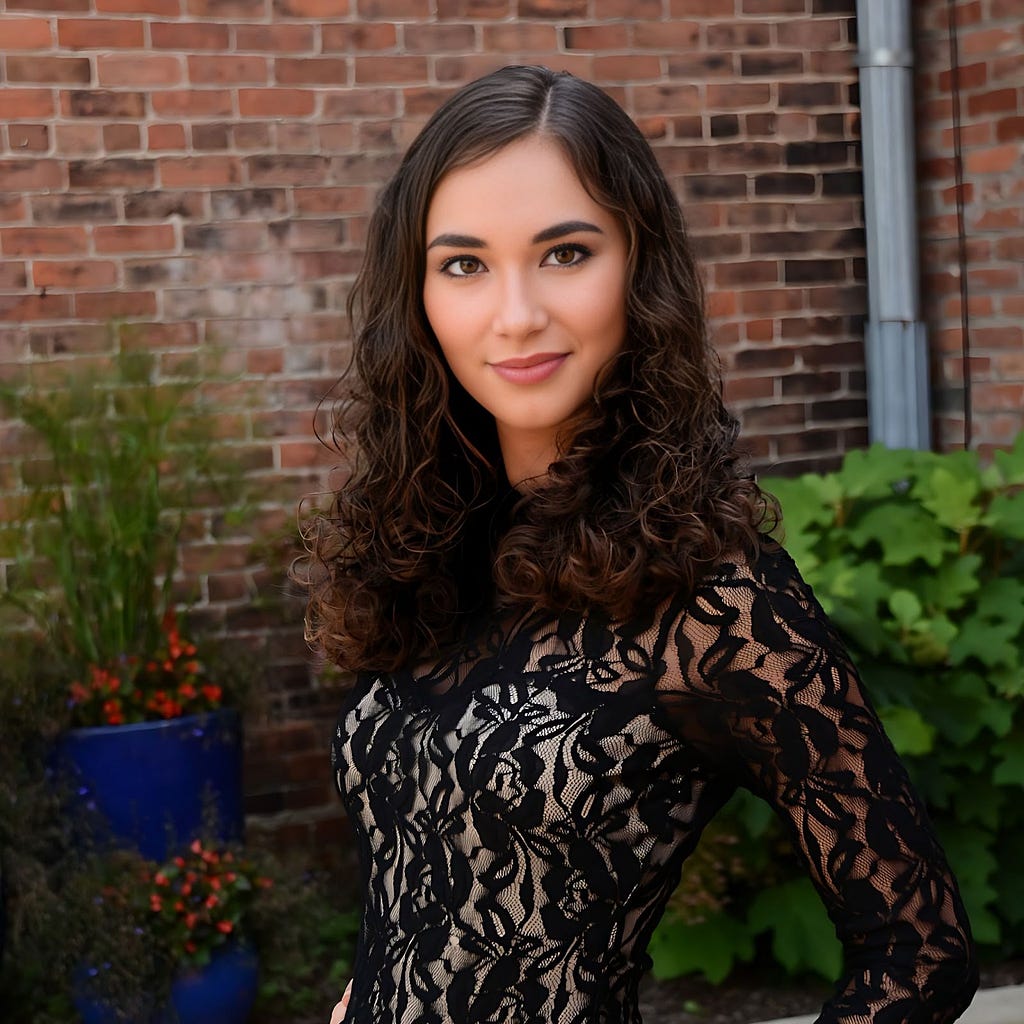
…Your self-communication is an important tool that’s not talked about a lot. Self-communication is the concept of checking in with yourself. Hey, does this client seem right for me? Hey, is this person kind of crossing my boundary? Is this person doing something that’s not right? I love to have intentional conversations with myself throughout the day, but in the beginning, no one ever told me that that was a thing. So I’d say self-communication is so vital to owning a business.
Also, be playful. Don’t box yourself in so hard to one thing or one strategy or one concept or one idea that you don’t give yourself room to play. Play is a natural. Humans need it. I need more of it than other people. If I were doing the same thing every day, I would be definitely exhausted. Be playful in your business…
I had the pleasure to talk to Brooke Young. Brooke is a multi-hyphenate professional with experience in broadcasting, public relations, and character acting. She is the founder of a communications consultancy and public relations firm. She is also the owner of a character company. Young grew up doing semi-professional theater and loving art and all creative types of art forms. This led her to pursue broadcasting, particularly sports broadcasting, in college. She has been a friend to many popular princesses.
Young is passionate about shifting the narrative for her clients and making magical experiences for people. She is also a strong advocate for women in the workplace. Young is a versatile and experienced professional with a passion for making a difference. She is well-respected in her field and is known for her creativity, dedication, and commitment to her clients.
Yitzi: Brooke, thank you so much for joining us, it’s really an honor to meet you. Before we dive in, our readers would love to learn about your personal origin story.
Brooke: Absolutely. I’m very multi-passionate– it describes me best! I grew up doing semi-professional theater, loving art, and all creative forms of expression. This led me to pursuing broadcasting, particularly sports broadcasting, in college. What drew me to the broadcasting industry was the opportunity to think quick on your feet, be adaptable in different environments, and for me personally, to use my gift of creativity and emoting to make a difference. Whether it’s interviewing someone one-on-one or sidelining a game, I love shifting the narrative to make a difference in perception.
From there, I ended up founding my own business, a communications consultancy and public relations firm. I’m tremendously passionate about shifting the narrative for my clients; from truly getting in there with them to shifting the brand story. Because I love to talk, and I am talking to people all day long, I feel that I’m where I am supposed to be for this chapter. In addition to that, I own a character company here in Ohio. I like to say that I make little kids’ dreams come true for a living.
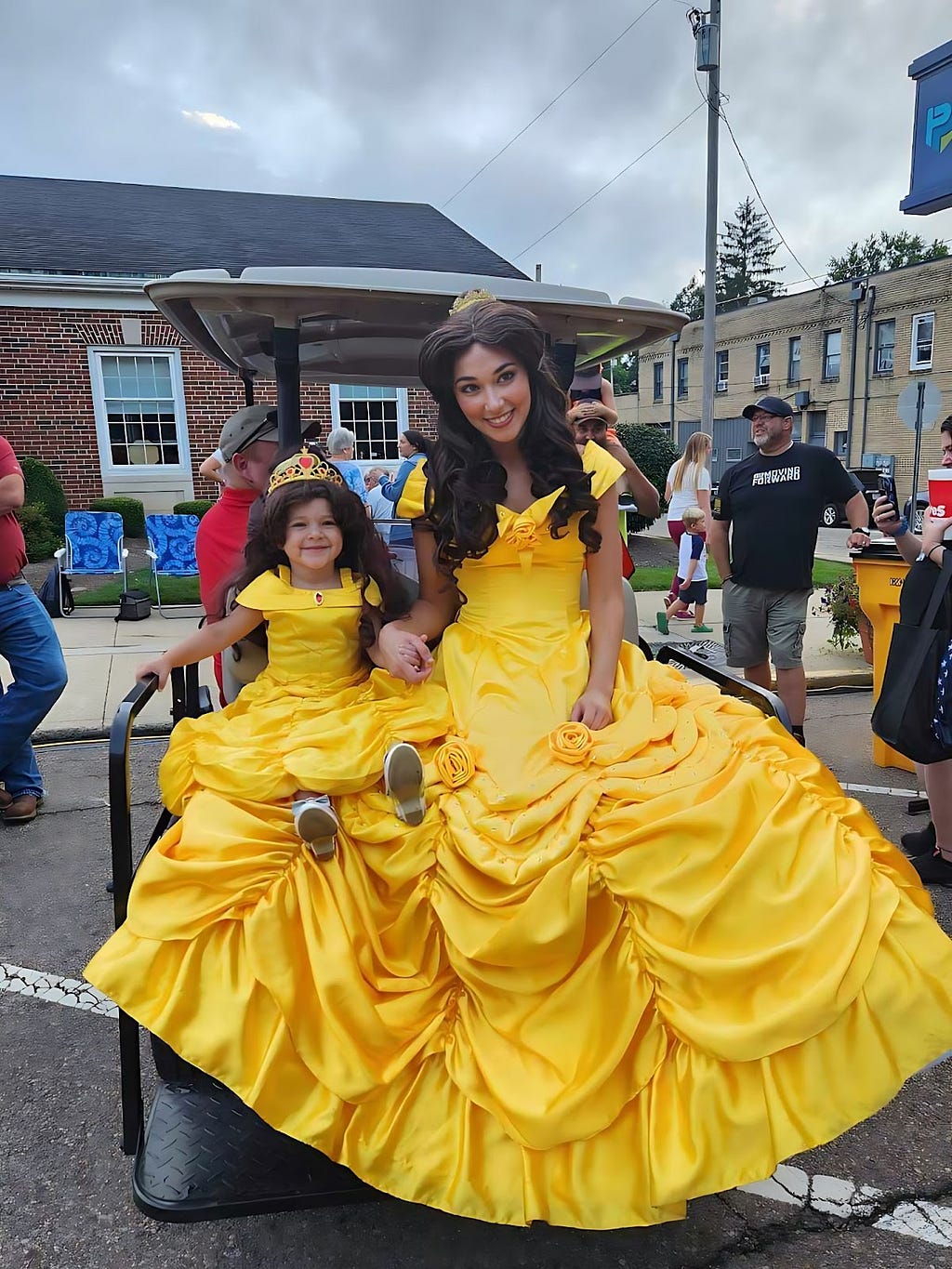
Yitzi: Unbelievable. So you probably have so many fascinating experiences from either your career as a journalist, as a Disney character, or as a public relations pro. Can you share with us one of your favorite memories or favorite stories from your respective careers?
Brooke: Sure. One thing that I’ve really taken with me into everything I do is that when you’re meeting children and giving them this once-in-a-lifetime experience, whether you have a line of 50 children or 100 children, you must see them as more than cookie cutters. Every child is distinctly different. Some of them like to talk a lot, some of them are very shy and need you to tell a story, some of them want to hug, some of them don’t. To be able to look at each individual experience and say, “I’m here to give you what you need,” is a skill you cultivate over time. Being intuitive like that, being adaptable, and being creative in the moment aren’t things you’re born with. They’re things you must cultivate, learn, grow, and build.
For me, that’s how I see my clients and how I approach any media interviews. I can’t have a structured set of cookie-cutter questions. That’s not authentic to who I am, and it doesn’t give them what they need. For my clients, I tell them all the time that I work with them differently than I work with someone else because I’m here to shape the experience for them– they are not cookie cutters to me.
I believe that I learned that from being a character and providing those experiences for the kids.
Yitzi: It’s been said that sometimes our mistakes can be our greatest teachers. Can you share with us a story of a humorous mistake that you made when you were first starting, either in any of your careers, and the lesson that you learned from there?
Brooke: Yes, a mistake that I made when I first started interviewing people was that it’s easy to focus on yourself and get caught up in your own insecurity or get so frustrated with a word blip, a forgotten word, or a stumble that you lose the flow of the interview and take yourself out of that moment. Being present with the person you’re interviewing, the people you’re serving, and your clients makes a profound difference. If you’re so stuck on a stumbled word that you’re splitting your psyche and constantly thinking 50% about what you’re saying and 50% about how upset you are about this mess-up, you will struggle to truly be in the moment and create those magical experiences for people. I’m big about bringing true magic to people, but my work should be magic to people too. I can’t do that if I’m thinking, “Oh my gosh, I made a stumble. This is terrible. This is the worst day ever.”
It’s learning to let that go and focus more on being present versus being perfect.
Yitzi: Okay, great. Is there a person who made a profound impact on your professional life? And if there is, could you share a story about that person?

Brooke: Such a hard one for me! I’ll go with my Mom.The reason is that I was homeschooled; it made such a profound impact on my life because I was able to make my own choices and truly think independently for myself. My mom made a lot of sacrifices to homeschool me, and I’ve seen how she really poured her heart into it. I’m so grateful for her selflessness. It touches me, and it’s something I try to emulate in my own life. I try to put myself in my clients’ shoes and think about their background, their life, and where they’re coming from so that I can really serve them best.
Yitzi: So, Brooke, you have so much impressive work. Can you share with our readers some of the exciting projects that you’re working on right now and what you hope to be working on in the near future?
Brooke: My bad habit is talking about my clients before I talk about myself, but here are a few things I’m working on:
My Character Company will be involved with our first Night to Shine this year (in Ohio). We are tremendously excited to provide this opportunity for our friends with special needs. It’s a humbling and beautiful reminder of how far we’ve come and how many lives we have been able to touch.
Secondly, I’m thrilled for the prospect that I am opening my heart back up to TV Hosting and Presenting.
And third, I’m excited to take better care of myself. That’s really been at the top of my mind: how can I still take care of my clients while taking better care of me? I haven’t always done a good job with that balance. In fact, I’ve been terrible in the past. However, I’m really excited about how I can still balance the great work my clients are doing with balancing myself?
In terms of my work with clients, one of them graciously paid me to host a Podcast for them; I’m facilitating a few magazine covers; and four of my Clients are heading to National TV next week.
I can’t complain!
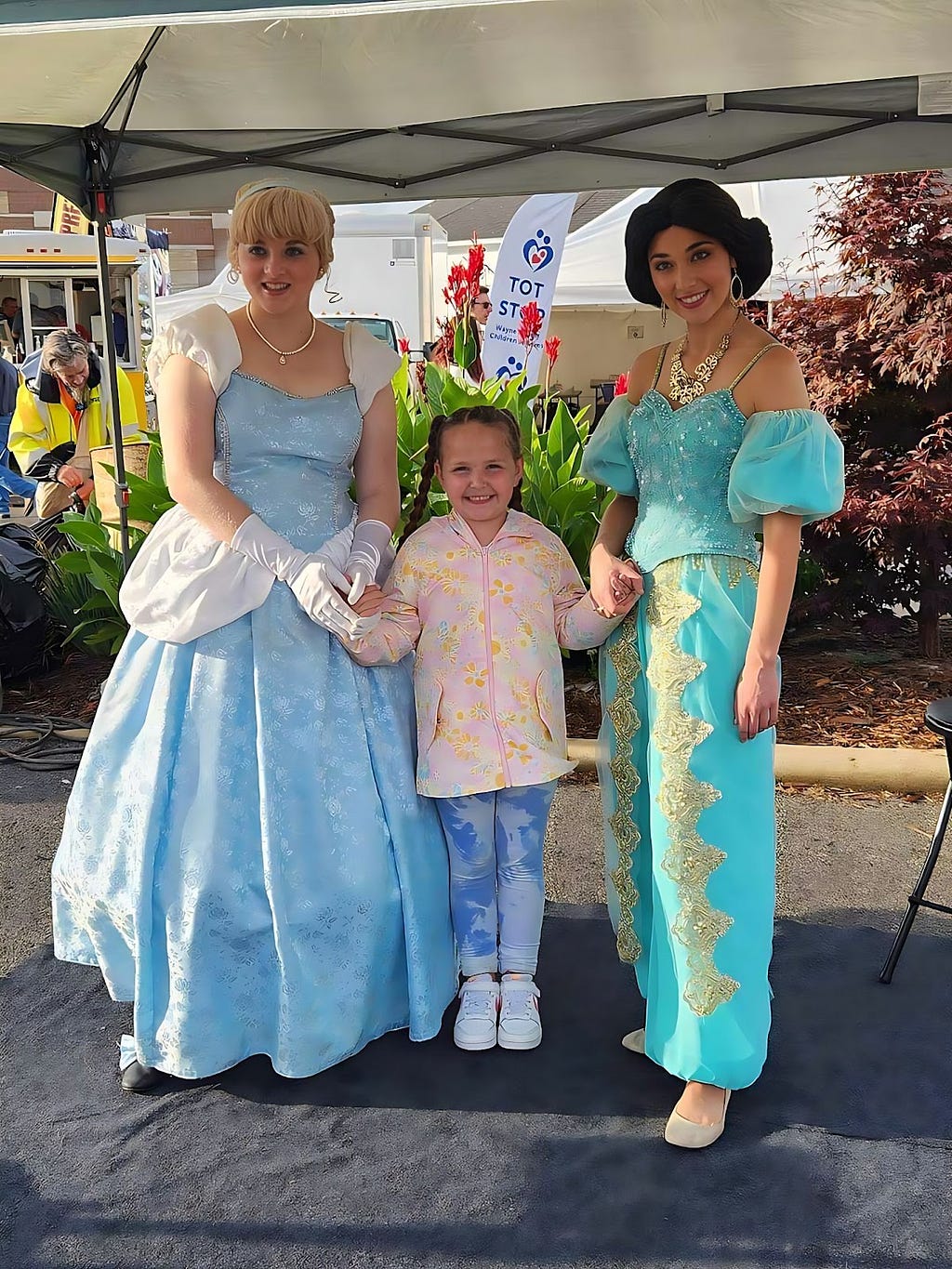
Yitzi: I’m aware that you’re doing some great social impact projects. Can you describe for our readers how your company is making a significant impact on young challenged children, children with difficulties?
Brooke: Absolutely. I’m a proponent of learning from those around us. When I was young, I trained my first therapy dog. As we took her to care facilities, I formed multigenerational friendships from a young age.
This was foundational in a few distinct ways.
First, it’s easy for an eight-year-old to walk into a room with an eighty-eight-year-old and feel there is nothing in common. Yet, I was able to balance those friendships and begin to see people for who they truly are and the value they bring by being who they are.
Second, I learned that communication can happen even if someone is nonverbal. I’ve often been asked if I get tired facilitating social impact projects, and I do, but in reality– their energy gives me life.
It’s what keeps me going on my hard days. Some of them can’t talk to me, but that doesn’t mean they aren’t giving me just as much love as if they said “I love you.” A hug or smile can be a powerful form of communication.
Yitzi: Can you describe in more detail or share a story about a child who was impacted by one of your characters?
Brooke: Yes. My sister and I performed together, and unlike some sisters, we are very close. My sister grew up with speech issues. During a large-scale event, we met a little girl who was around two and a half. Her mother said, “She’s not going to talk to you. She’s nonverbal and doesn’t speak.” I started telling stories, and was quite prepared for the fact the child wouldn’t verbally respond, but I took the extra time to give her the space she needed. She ended up saying the name of the character as her first word. And her mom burst into tears because they’ve been trying to get this child to talk forever. And she had never spoken a word to them, to anyone in her life. It truly is moments like I described that make such a huge difference.
Even sweeter, we are still in touch with the child and the family. She doesn’t know me, of course, but it’s humbling to see her and remember that she said her first word to me.
Yitzi: Beautiful. Were you dressed as Elsa then, or did she just make that connection?
Brooke: Sure. We provide theme park-quality Princesses. Quality means everything to me. She was with the Snow Sisters that day.
Yitzi: Oh, I see. You’re saying you can’t say the names.
Brooke: She was with the Snow Sisters. I can show you a picture! I can say the Snow Sisters.
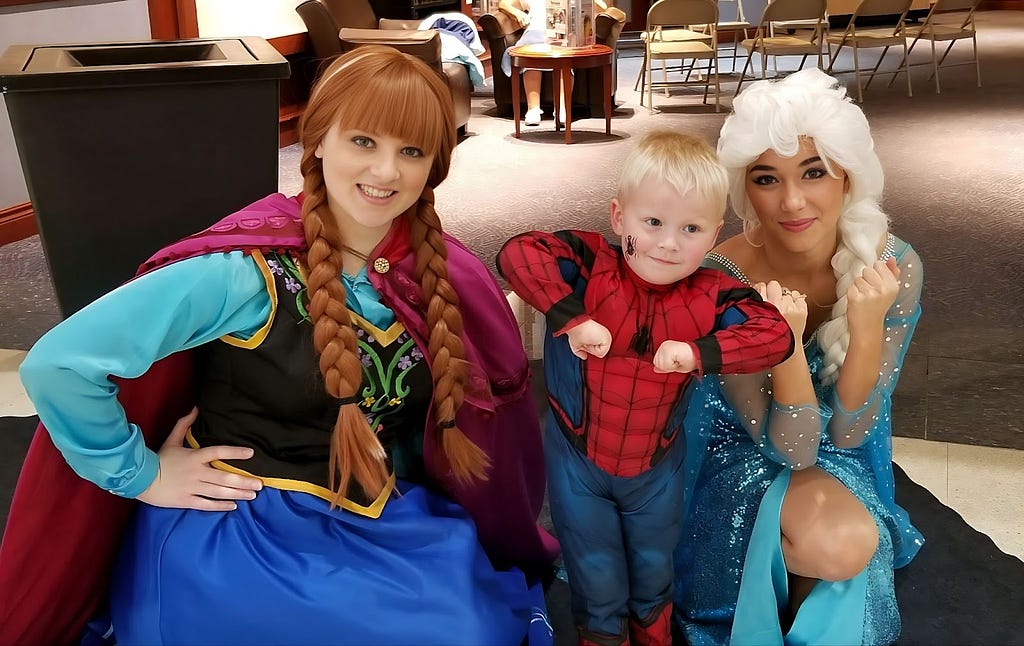
Yitzi: Please tell me about your recent TEDx talk.
Brooke: On October 1st, I gave a TEDx talk, which was never a part of my life plan. Offhandedly, I applied with an idea I felt excited about and ended up receiving an acceptance email. A moment of panic ensued! I thought, “Oh my gosh, I have to put this together really fast,” because I had roughly two months.
My idea was this concept of ageism. It’s the belief that certain people are inherently less valuable or less worthy– simply because of their age. This could be because someone is seen as having too little experience or because they’re too enthusiastic and bubbly. Or, on the other hand, it could be because someone falsely believes another person’s ideas are outdated.
In my talk, I broke down how ageism has impacted my life and held me back from going after my dreams, as well as how ageism has impacted many colleague’s perception of me. In my case, I am naturally enthusiastic– as a personality trait.
For a long time, I tried to dampen that and not be excited — because there had been correlations made that I was “incompetent” or “dumb” due to my enthusiasm.They made the correlation that if I was excited about something, it could indicate I did not know what I was talking about.
So for a long time, I continued on this path of dampening, working hard to be more professional, or calm, or collected, but this was an inauthentic expression of who I was. In my TEDx speech, I broke down not only this topic, but how our perception impacts us personally, societally, and professionally.
I want people, regardless of how old or young they are, to know that their ideas have value.
A great idea should not be tied to the age of the person who proposed it.
Yitzi: That’s great. Beautiful. So, for those unfamiliar with the process, can you share a little bit about how a person applies to do a TEDx?
Brooke: Yes, I’m really lucky. I’m a lucky duck! You will learn that, Yitzi– I am blessed and lucky.
I ended up applying on behalf of a few clients and netting several positive responses. But all of our experiences were vastly different. I’m one of those lucky people that obtained the opportunity on my first try.
And part of that, I think, was number one, that’s what I do for a living. So, don’t hold yourself to my standards if you are learning how to pitch yourself.
But number two, my message was less about my life and more centered around the world. That’s the big advice I give people: What idea do you want to impart on the world? It’s not selling your product. It’s not selling your book. It’s what idea do you want to be known for? That’s your TEDx. And if you can do that, the application process becomes swimmingly easy.
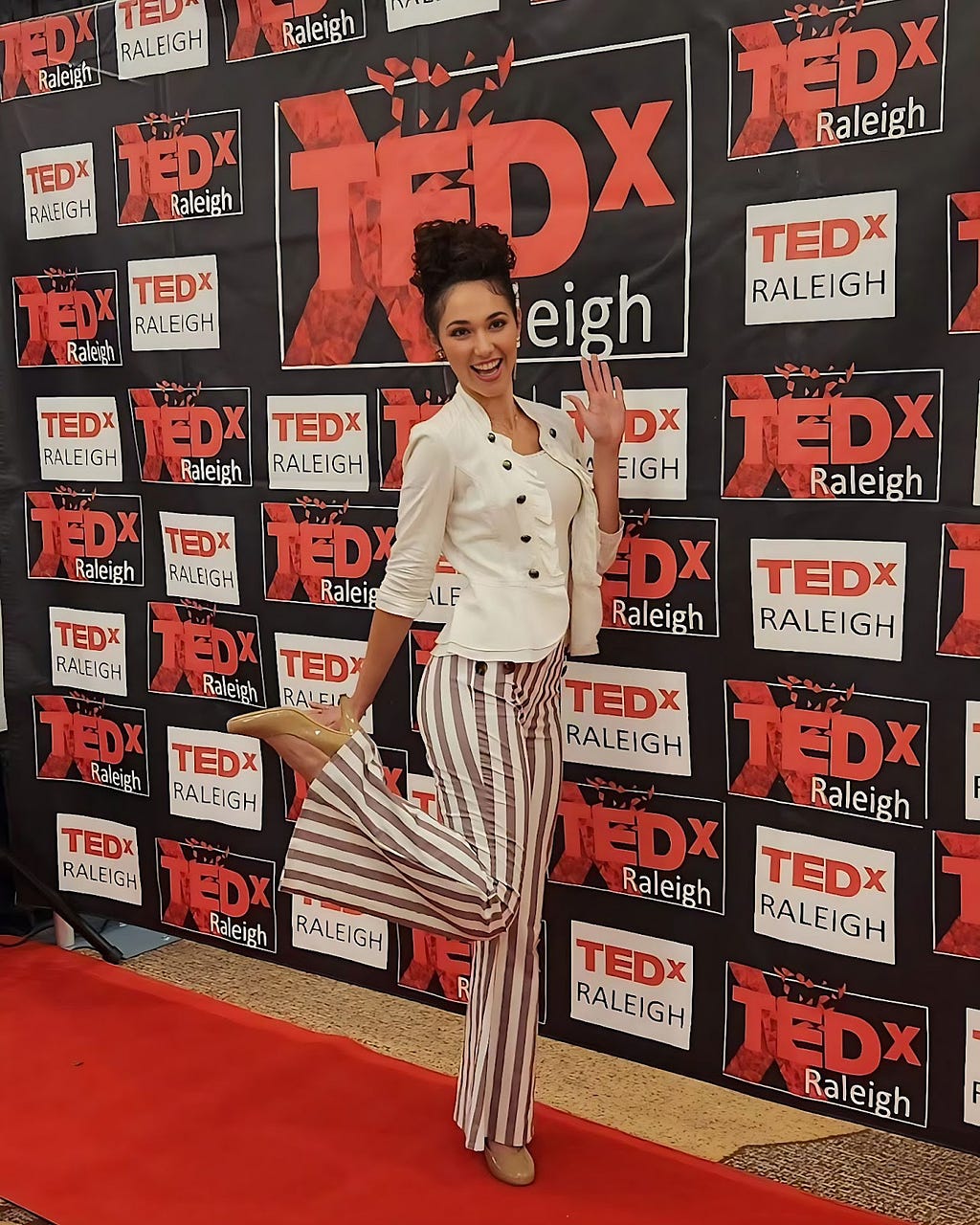
Yitzi: So, do you want to be known as an expert on the dangers of ageism?
Brooke: I want to be known for everything! I’m big on bringing loving awareness to some of the problems in our world, the pitfalls I see, and the issues that I’ve had or that other people around me have had. So, I want to bring loving awareness to all sorts of things. I don’t want to pigeonhole myself. I’m too multi-passionate for that.
Yitzi: So, you’re saying that loving awareness is your end goal, and it just happens to be that ageism is one important cause that you’re passionate about. You want to bring loving awareness to everything important.
Brooke: Yes, I’m huge on importance. (Laughs) You know, I love animals and want to talk to people about the dangers of puppy mills. I want to talk to people about how we learn from our children, not just teach them. I mean, everything. I’m big into a number of ethical causes.
Being a human is feeling passionate about things, so how can you stick a label on yourself and say you can only be passionate about this one thing for the rest of your life?
That doesn’t seem possible to me.
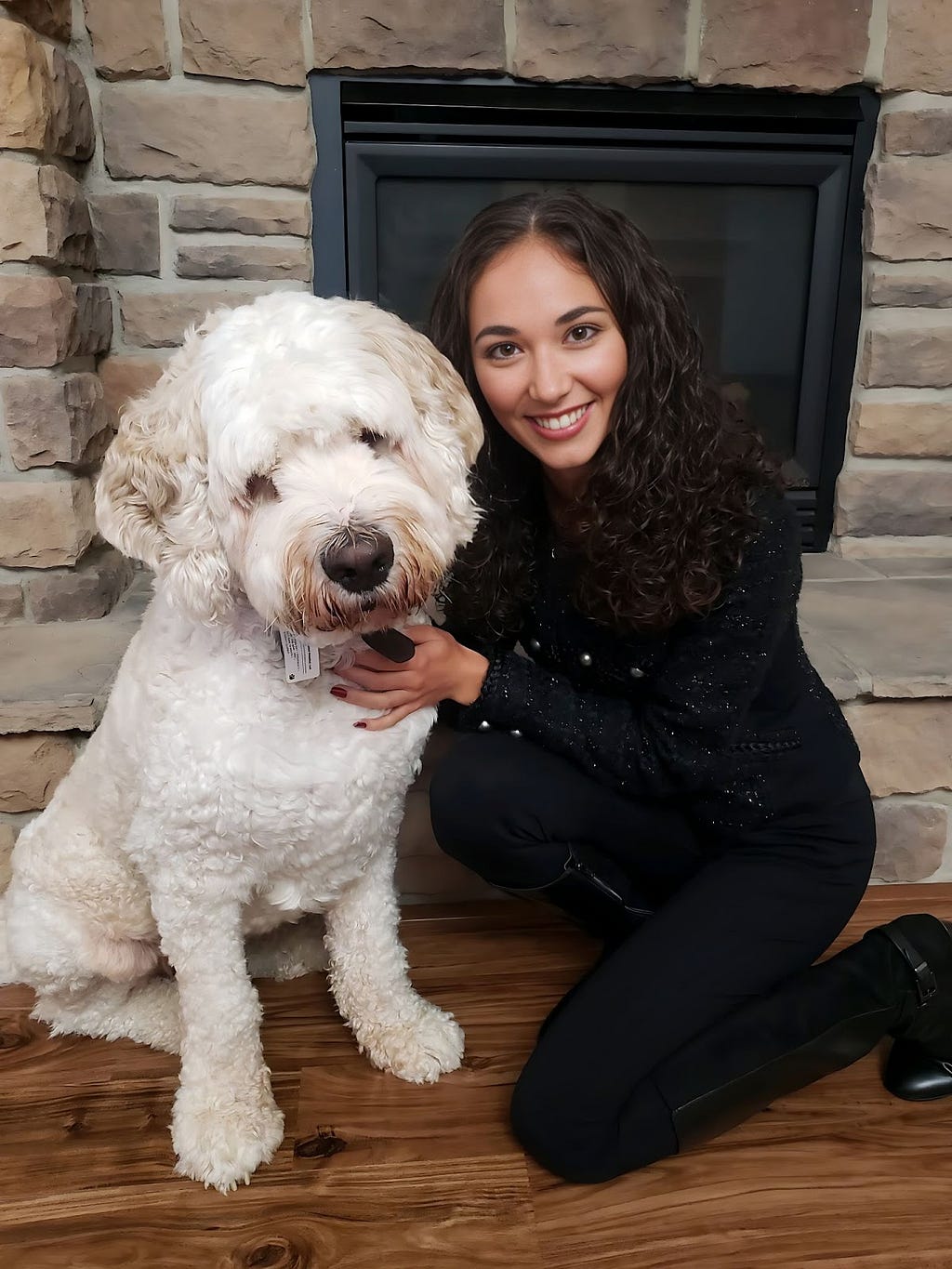
Yitzi: I think I saw on your bio that you wrote a children’s book. Can you tell us about that?
Brooke: Absolutely! I chose to write a children’s book because I didn’t have the patience to embark on an adult book!
The book is based on true stories from my childhood with my grandpa, who has since passed away. Together, we trained a therapy dog when I was around eight or nine years old, and we would take her to nursing homes and such. This experience allowed me to forge multi-generational friendships and to appreciate people for their value instead of focusing on our differences.
I’ve held onto these wonderful memories, and I wanted to honor my grandpa, so I immortalized our stories in a children’s book. It’s entirely true and aims to encourage volunteerism among children, which is vital for their development. It also serves to clarify the role of therapy dogs, distinguishing them from their service dog counterparts, and it promotes the beauty of multi-generational friendships, showing how they can be incredibly beneficial for communities.
In addition, I do school visits where I not only get to share the book but also teach children about the importance of reading, writing, and volunteering. These visits are fantastic because the kids are so curious and ask the most delightful questions such as whether or not I am famous, or if I am wearing hair extensions. These interactions bring me joy and a burst of excitement, which I then channel back into my business and creative endeavors.
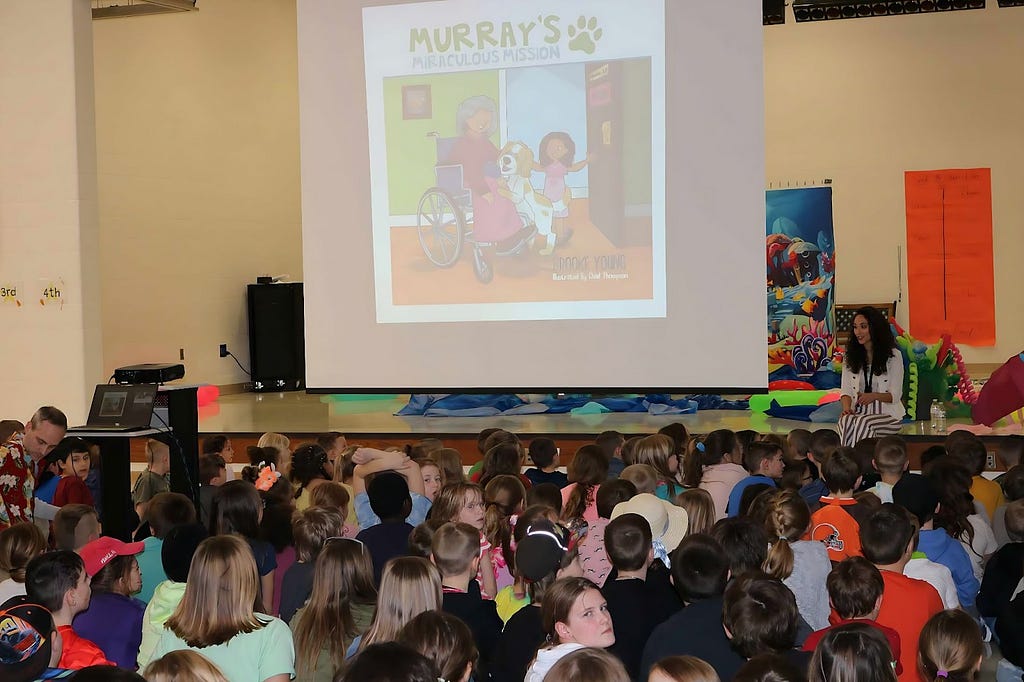
Yitzi: Can you articulate to our readers why intergenerational learning and connection are so important? And how can we create more opportunities for that?
Brooke: I want to emphasize the importance of creating safe and structured opportunities for this kind of learning. I don’t have all the answers on how communities should incorporate it, but I believe mentorship and after-school programs are a good start. It’s about creating chances to have fun together and allowing children to step out of their age groups to mingle with the older generation. This fosters an exchange of wisdom that isn’t just one-way. Often, we think the older individuals have all the wisdom to share, which is a traditional view. But young people have a lot to offer too — they bring energy, enthusiasm, and a fresh perspective that can enliven the older generation. This exchange is not just beautiful; it’s integral to personal development and creating a better world.
Yitzi: You’re a leader and you’ve done a lot of great things. How do you define leadership, and if you could please share an example or an anecdote to describe that?
Brooke: Leadership has so many different styles and flavors. Say you go into an ice cream shop and the type of ice cream you like is totally different than the ice cream that I like, my sister, my best friend, my client, and so on and so forth.
Define your leadership style by what feels right for you, not what feels right for other people, because when you have a defined flavor — let’s just say I’m mint chocolate chip — the people that like mint chocolate chip will come find me, right? They’re going to be attracted to me. I don’t need to be rocky road. I don’t need to be strawberry ice cream.
Those types of leadership styles will find the people that need them, and so I’m very defined in my leadership style. I’m very compassionate. I really, really, really care about people. Another thing I would say about my leadership is I’m honest and I try to be encouraging. But you know, some people need a harsher leadership, so that might be rocky road.
Go to the flavor that makes sense for you, but don’t let your flavor be defined by the fact that rocky road was really popular on Monday. Be the leadership style that’s right for who you are. Is that what you’re looking for, or is that kind of offbeat?
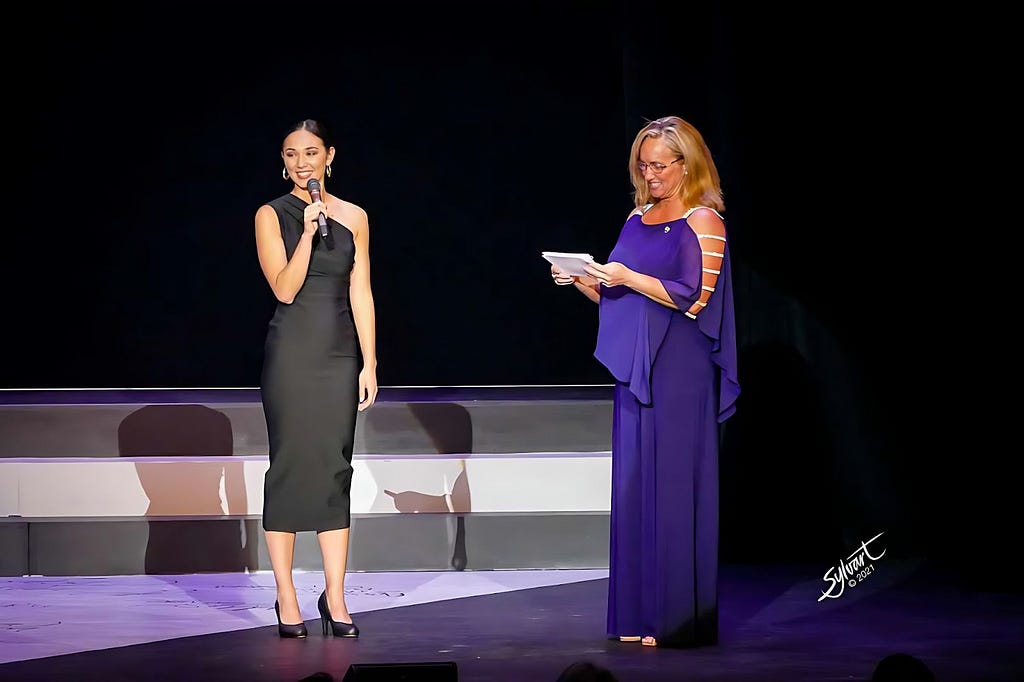
Yitzi: So what is your “flavor” of leadership?
Brooke: I would say compassionate leadership. This is an interesting question. I don’t think about this too much. I would say compassionate leadership. I would say I try to lead as much with my heart as I possibly can. I’m very intuitive.
I would also say honest leadership. I don’t want to be the type of leader that holds my feelings back and keeps a lot of things held back.
I would also say my leadership is open-minded. Open-minded is huge to me. I don’t care if you’re 89 years old. If you have an amazing idea, I want to hear it. I don’t care if you’re 9, if you have an amazing idea, I want to hear it. So I want to be open-minded and create a place where all voices are met and supposed to be heard.
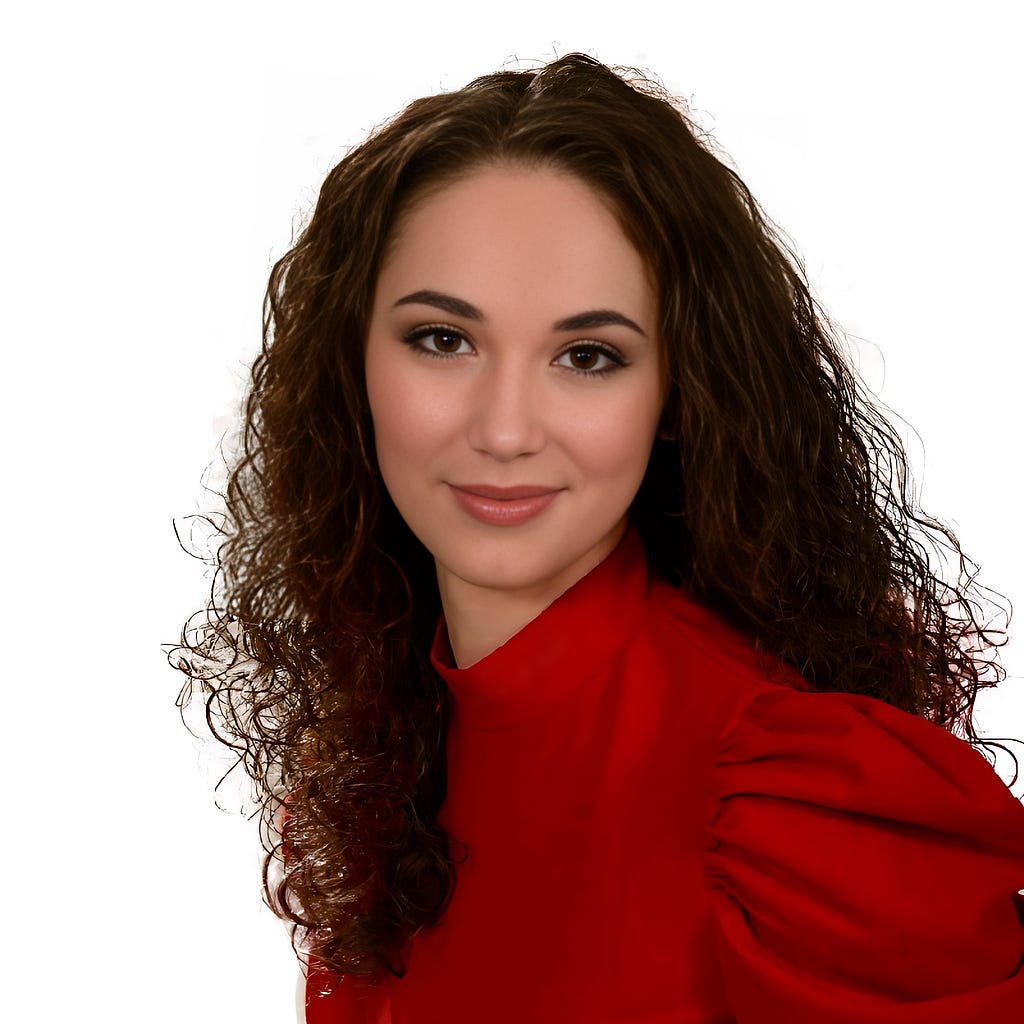
Yitzi: This is our signature question that we ask in all of our interviews. You’ve been blessed with a lot of success and you have a lot of experience now. Looking back to when you first started, do you have five things you wish somebody told you, or wish you knew before you started your business?
Brooke: Yes, I’m going to go through these, kind of fast, and then if you want me to explain, let me know.
- Number one, age doesn’t matter. It’s not that age doesn’t matter, but a great idea should never be tied to the age of the person who proposed it. There are so many times and instances where I didn’t say the idea because I was afraid that people wouldn’t take me seriously. No matter how young you are, no matter where you are, just know that your idea has value and merit.
- Number two, take the time for yourself. It’s easy to get in the hustle and grind. I made that mistake. I’m very competitive. I love to build things. Don’t build things at the expense of your self-care, your self-communication, or your self-trust. And that leads me into point three.
- Your self-communication is an important tool that’s not talked about a lot. Self-communication is the concept of checking in with yourself. Hey, does this client seem right for me? Hey, is this person kind of crossing my boundary? Is this person doing something that’s not right? I love to have intentional conversations with myself throughout the day, but in the beginning, no one ever told me that that was a thing. So I’d say self-communication is so vital to owning a business.
- Number four, be playful. Don’t box yourself in so hard to one thing or one strategy or one concept or one idea that you don’t give yourself room to play. Play is a natural. Humans need it. I need more of it than other people. If I were doing the same thing every day, I would be definitely exhausted. Be playful in your business.
- Number five, have a dog or a pet. Your pet will remind you what really matters, and my pets are home with me here every day. And they’re just a good reminder to stay humble, to be empathetic. You can learn so much from dogs and so much from children. So if you’re uninspired, spend time with a child, spend time with your preferred animal, and I promise you that that will reignite your creativity.
Yitzi: On the topic of taking care of yourself, can you share with our readers your self-care routines and practices that you do to help your body, mind, and heart thrive?
Brooke: Yes.
- First, I’ve struggled with people-pleasing in the past. So, learning to say no when something’s not right for me and not feeling the need to be a savior is important. It’s knowing when to say yes, when to say no, and when to pass someone off to someone else.
- Second, I go for a walk every single day, even in my cold state.
- Third, I do little things that make me excited, like coloring in My Little Pony coloring books or wearing funky hairstyles. Just little things to ignite my excitement.
Yitzi: Brooke, because of the work that you’re doing and the platform that you’ve created, you’re a person of enormous influence. If you could inspire a movement or spread an idea that would bring the most amount of good to the most amount of people, what would that be?
Brooke: Wow. I’m going to need a second here. This is not what I was planning to say, but this is what I’m going to say. I find myself in these kinds of situations often. The most important thing is not to limit whom you allow yourself to learn from. It’s really easy to build up walls and differences and say, well, this person knows less than me, so I can’t learn from them. Or, this person’s in a different industry, so I can’t learn anything from them.
Instead, be open to diverse perspectives, ideas, and understanding who they are. I have learned so much from the children I work with — they don’t judge each other, they’re naturally empathetic, warm, and kind. Watching them and seeing how they conduct themselves inspires me toward humanity and reminds me not to limit myself. I don’t say, I can’t learn from them because they’re younger. Sometimes I’ll learn from a client with whom I seemingly have nothing in common, who appears to be my polar opposite, yet their perspective ignites something in me. You’ll learn a lot if you remain open to learning from everyone.
And it doesn’t matter how many times something has been said. I tell my clients this because they’ll worry that there are many people already discussing the topics they want to talk about. But the way you say it matters. It resonates perfectly with the people who are meant to understand it from your unique perspective. It could have been said 500 times, but someone will connect with your tone, your word choice, and the way you phrase it.
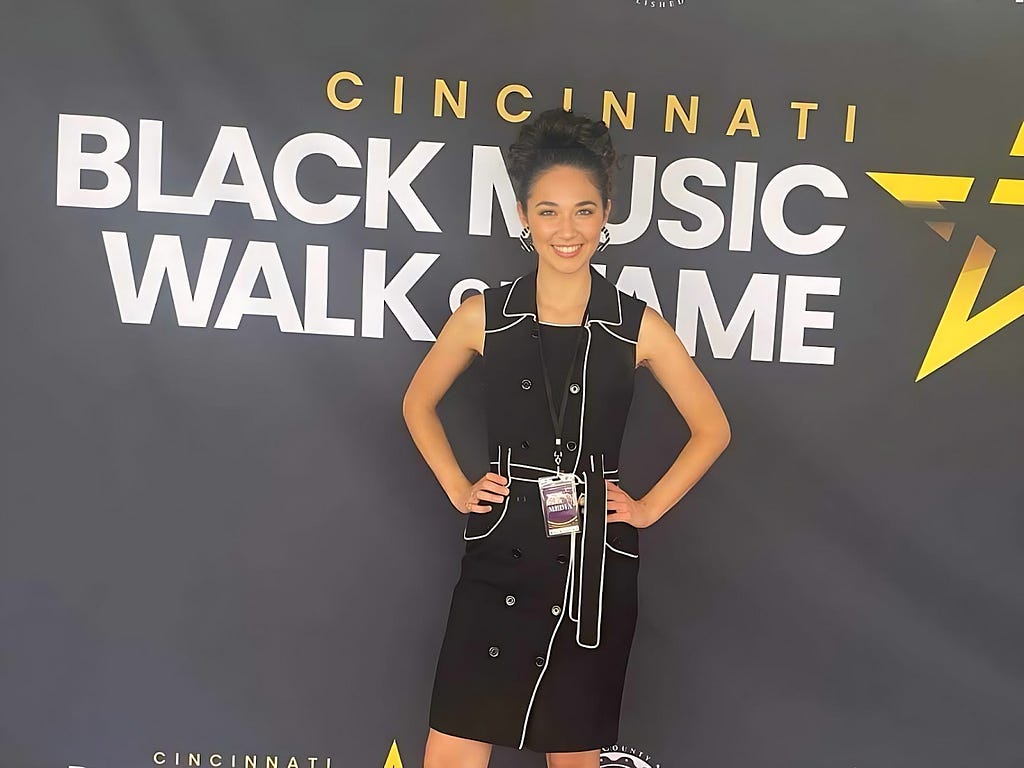
Yitzi: Beautiful. How can our readers continue to follow your work online? If they want to hire you or your agency, how can our readers support you in any way?
Brooke: Yes, interestingly enough — and you can put this in the article, I don’t mind — I don’t have a website. That’s because I have plenty of referrals, so I’m only on social media. I actually don’t have a website. They can follow me at Brooke Elise Young on Instagram, and Brooke Elise Young on Facebook as well. I love making new friends, so people shouldn’t hesitate to reach out to me.
Yitzi: Amazing. Well, thank you so much. This has been so informative, and I am excited to share these stories with the world.
Social Impact Heroes: Why & How Brooke Young Is Helping To Change Our World was originally published in Authority Magazine on Medium, where people are continuing the conversation by highlighting and responding to this story.